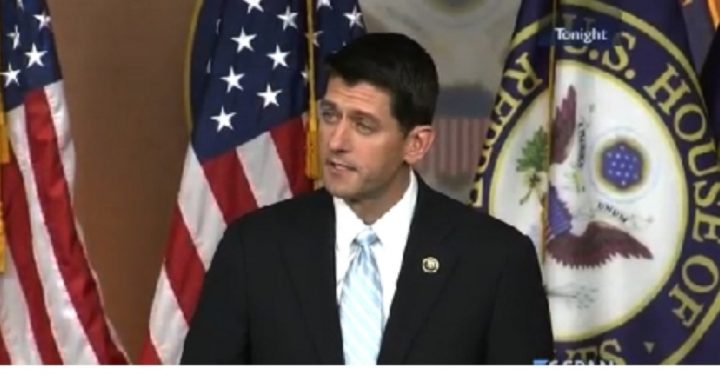
The saga of Paul Ryan (shown) for speaker of the House continues to unfold, with Congressman Ryan now professedly willing to take the job, on condition that he receive unanimous support from his Republican colleagues, have time to spend with his family — and have considerably more power to impose his will on disparate and often conflicting factions within his own party. Specifically, Paul Ryan wants to strip his colleagues of the power to challenge the House leadership in the middle of a term, all but guaranteeing that whoever is speaker at the beginning of a new session of Congress will be speaker two years later.
This last condition has proven a sticking point with the 40-odd members of the House’s Freedom Caucus, whose determination to call for the equivalent of a vote of no confidence for Speaker John Boehner led to Boehner’s decision to step down. One of the House’s staunchest partisans of liberty, Raul Labrador, has already called Ryan’s demand to eliminate the procedural motion to vacate the chair a “non-starter,” and many members of the Freedom Caucus have refused to endorse Ryan.
Those who have been following his career, including constitutionalists in the House, are well aware that Ryan is more of a skilled politician than a principled statesman. His anti-Big Government rhetoric over the years has not been matched by legislative action — except during the first two years of the Obama administration, when both houses of Congress were controlled by the Democrats. Now that his party controls Congress, Ryan has become a reliable asset of me-too Republican accomodationists whose primary concern is making sure everyone gets along, instead of actually reducing the size and cost of government.
As of this writing, the Freedom Caucus has withheld endorsement of Ryan, suggesting that it does not intend to surrender preemptively to one of the old Republican guard’s acolytes. About 70 percent of the Caucus has voted to support him, but Caucus rules require 80 percent for an endorsement. Ryan therefore probably has the votes to win the speakership if he decides to seek it, but the Freedom Caucus is signaling that it will try to hold him accountable no less than they did his predecessor.
Related artcle:



